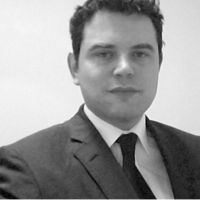Ian Paisley, a firebrand Unionist who made peace late in life
Loading...
| Dublin, Ireland
A titan of politics. A moral light in the wilderness. A peacemaker. A bigot. A man with blood on his hands. The legacy of Northern Irish political and religious leader Rev. Ian Paisley, who died today, will be hotly disputed. But the stature of the fundamentalist preacher and one-time leader of pro-British unionism is not in question.
Wryly referred to as the greatest recruiting sergeant the Irish Republican Army (IRA) ever had, Ian Paisley was a leading figure in Northern Irish politics for six decades and, in a surprising about face at the end of his career, turned from inveterate hostility to Irish Republicans to serving in government with former IRA men.
But his legacy and support was built on bellicose street-preacher style that may have alienated some, but attracted many leading pro-British loyalists, including those who killed innocent Catholics and said they were radicalized after hearing Rev. Paisley speak.
His actions helped spark the three decade conflict in Northern Ireland, primarily by opposing Catholic civil right protests and sparking an anti-Catholic riot in 1969 that was to reinvigorate the IRA.
With braying Paisley Unionists to one side, and studiedly indifferent state forces to the other, the IRA reemerged as the defender of the Catholic and Irish nationalist population.
His anti-Catholicism was legendary. In 1988 Paisley was removed from the EU parliament after shouting “I denounce you as the Antichrist!” at Pope John Paul II, who was addressing the chamber.
Always an iconoclast, Paisley was never part of the Northern Irish -- or British -- establishment. He founded not only his own political party, the Democratic Unionist Party, but also his own church, the Free Presbyterian Church. He aligned himself with the Independent Orange Order fraternal organization rather than the main Grand Orange Lodge of Ireland.
From war to peace
Speaking on Irish radio his political colleague Jeffrey Donaldson paid tribute: “He was a towering figure in the politics of Northern Ireland for many, many years. I think his legacy will be as First Minister helping to cement the peace process and taking Northern Ireland forward.”
Former Irish Prime Minister Bertie Ahern described him as “a big man with a big heart." Northern Ireland’s deputy First Minister, Martin McGuinness, who was once Paisley’s deputy, described him as a friend, despite having once been bitter opponents: Mr. McGuiness, a member of Sinn Féin, is a former IRA leader.
But Paisley initially opposed the peace process and the 1998 Good Friday Accord that ended the 30 years of Unionist-Republican violence. He even brought down a previous peace process in 1973 by calling a strike that ground Northern Ireland to a halt.
Eamonn McCann, commentator on Irish affairs, takes a dim view of Paisley’s life and works.
“No matter what he did in the last few years of his life to repair the damage that his career has wreaked upon Northern Ireland, the judgement has to be negative,” he says, adding, “He was a source of division, a source of hatred. Dr. Paisley helped to create, and then for years helped to sustain, the political situation and emotional intensity in which the infliction of death was inevitable."
God before politics
Mr. McCann, a one-time civil rights activist turned journalist, locates Paisley’s politics firmly in his fundamentalist interpretation of his faith.
“He was motivated by religion rather than politics, even in the political arena," McCann said. "He made no distinction between Ulster and the cause of the Reformation, therefore to Paisley to give in to [Irish] Nationalism was to go against God -- and that was a recipe for political intransigence of a spectacular kind. That is why he rejected every compromise for decades... He provided a religious justification for murder.”
But by the 2000s the firebrand preacher changed his tune, settling into government in coalition in 2007 with his former bitter enemy, Sinn Féin.
The man who coined the slogan “Ulster says No!” finally said yes, a full 12 years after the guns were silenced in Irish politics.
His motivations for his dramatic and late volte face are unclear. But one argument is that his opposition to abortion and gay rights meant he was increasingly out of step with Britain. Devolution perhaps allowed him to pursue a moral agenda that he hoped would suspend Northern Ireland in political amber.
In the end his closeness to former enemies cost him not only his political office, but also his church, as he found himself unseated in both by younger members who were uneasy with the changes he finally acceded to.






